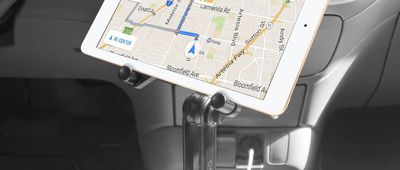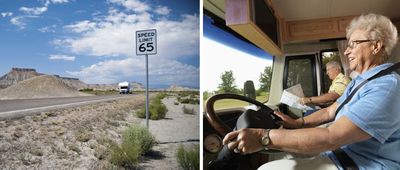Road Warriors, Beware
For some, the American dream is to own a house with a picket fence. For others, it's a house on wheels — a recreational vehicle such as a motorhome or fifth wheel — that can take them wherever they want, whenever they want, and vacation on the cheap.
But RVs are a big investment, especially if you want one with all the comforts of home.
Here are 21 reasons to think carefully before falling in love with an RV.






























